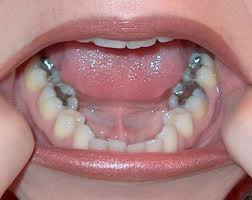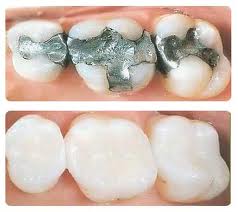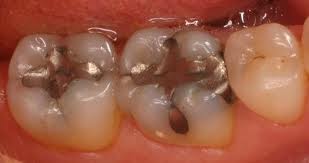This article provides key advice on the care of your child’s new, developing teeth.
By the age of three, most children have grown 20 teeth, which are then replaced by 28 permanent adult teeth by the age of 12. It’s only around 21 or so that the third molars - your wisdom teeth - emerge. “But just because your child gets a brand new set of teeth, doesn’t mean you don’t need to help them look after their old ones,” say dentists in Chicago. “It is vitally important that their baby milk teeth are properly looked after, or it will affect their dental health for life.”
Chicago Dentistry and Child Dental Care: Infants

Your baby should have his or her first appointment with the Chicago dentist at the age of six months and definitely by their first birthday. The development of your baby’s teeth is a critical time and it should be overseen by a professional to make sure that his or her teeth are erupting properly and without any problems. “Problems that could develop during this time of child dental care include thumb-sucking and gum irritation,” say Chicago dentists. “It may seem innocent enough, but constant sucking can actually change the way the mouth forms, resulting in a mal-occluded bite and badly formed teeth.”
Another typical child dental problem is baby bottle tooth decay. Owing to prolonged exposure to the sugars in fruit juices, formula and even breast milk, some infants can develop bacteria decay of their newly emerged teeth. It is vital that any signs of decay be immediately treated by your dentist to avoid any potential problems with the healthy development of permanent teeth.
Feed your baby during one sitting and do not leave them with a bottle to suck on for prolonged periods of time. If they are crying for their bottle and they have already been fed, give them water instead. You should never put your infant to bed with a bottle of juice or formula. Overnight, their new teeth will be saturated in sugar, encouraging bacteria activity and decay. Dentists in Chicago also encourage parents to wean their children off bottles and onto cups as soon as possible.
Child Dental Care: Pacifiers, Teething and Thumb-Sucking

During teething, your infant’s primary teeth will be emerging and pushing through the gums. This can be quite uncomfortable and even sore for them. Thankfully, there are a number of things you can do: Chicago dentists generally advise that you gently rub their gums with the back of a spoon, your finger or a square of moist gauze. You could even invest in a teething ring, which generally helps relieve some of the discomfort.
Above the age of four, sucking implements, such as pacifiers, teething rings and even thumb-sucking should be greatly discouraged as it can cause problems with the healthy development of your child’s teeth. Overcrowding and crookedness are common problems caused by prolonged sucking.
Chicago Dentistry Emergencies

When it comes to Chicago dentistry, prevention is always better than cure. Try to teach your child how to behave appropriately and safely in the playground environment. Admonish them for putting foreign objects in their mouths or for using their teeth as tools. Try to make your children more aware of their surroundings so that they don’t just walk out in front of a swing or under a see-saw. Simple awareness and “look where you’re going!” could help prevent a lot of child dental care accidents! If your child is ever involved in a dental emergency, rush them to your dentist immediately.






